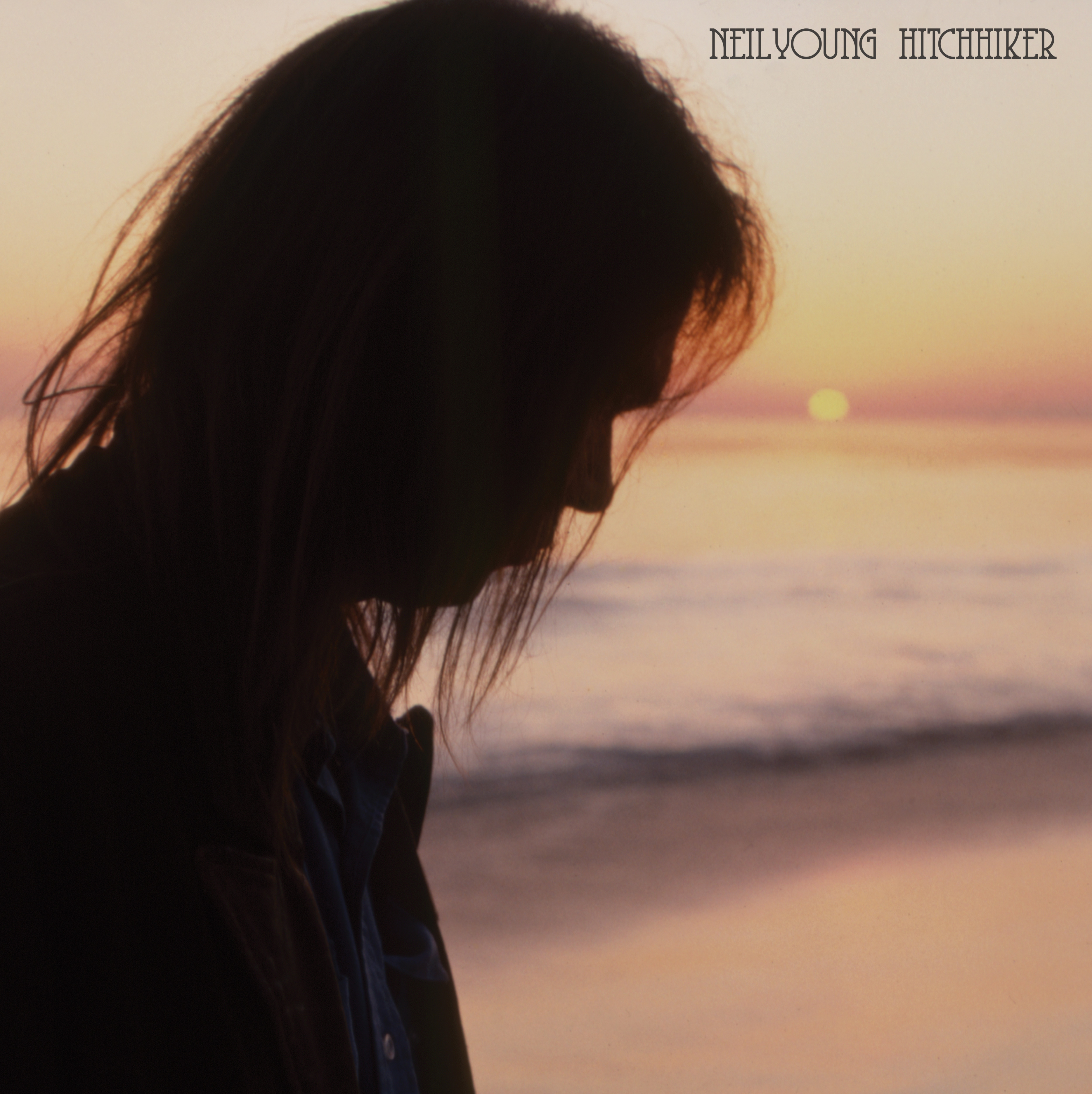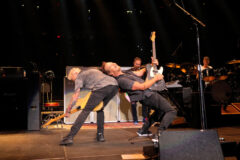On August 11, 1976, Neil Young sat down in a Malibu studio with an acoustic guitar, a batch of new songs, and enough weed, cocaine, and booze to get him through the night he planned to spend recording them. The rawboned record that resulted, which he called Hitchhiker, was never released. “I was pretty stony on it, and you can hear it in my performances,” he explained in his memoir Special Deluxe. Forty-one years later, he’s changed his mind, and Hitchhiker—one of several “lost albums” in Young’s large and disheveled canon–is available for listening for the first time this week.
Unreleased music is often unreleased for a reason, but the excitement with which fans have anticipated this album is warranted. Young was making great music at a stupefying pace in the mid-’70s, and he has proven himself an unreliable editor over the years, withholding gems and disowning one album that obsessives generally rank among his best. However, he is also a restless investigator and interpreter of his own catalog, and in the decades after recording Hitchhiker, he brought eight of its ten songs out from the basement and onto albums that he did release, occasionally tweaking the tunes to suit their new contexts. Listeners will recognize “The Old Country Waltz,” Hitchhiker’s plaintive closer, as the opener of American Stars ‘N Bars, where it emerged with mournful fiddle accompaniment the following year. “Ride My Llama” and “Pocahantas” turned up essentially unchanged on the acoustic first side of Rust Never Sleeps in 1979.
For Hitchhiker’s core audience, then–that is, people who care enough about Young to be invested in the contents of his vault–the main selling points are the two songs that got passed over, “Hawaii” and “Give Me Strength.” The first is a brief and elliptical fable about an encounter with a stranger who’s trying to get to the titular island state, with a nearly yodeled chorus channeled from the primal folk and pre-Nashville country music of the early 20th century. It’s a beguiling piece of music and poetry, and you can see how Young might have struggled to find its proper place on later albums. The second is a heartsick ballad that’s long been passed between fans as a bootleg from Young’s live performances in this era. “Give Me Strength” is not the best thing Young ever wrote in this vein, but it has a sweet melodicism that could have earned it a place on almost any one of his albums this side of Trans. That he decided against releasing it speaks as much to his quirks as a curator as it does to the power of the creative streak he was riding at the time. Maybe there were just too many other good songs available.
You certainly won’t find a clunker among Hitchhiker’s more familiar cuts, though few of them surpass the official versions. There’s “Powderfinger,” one of the strongest straight-ahead rockers he ever penned, present here in drastically stripped-down form, without the searing guitar lead that later became its trademark. There’s an embryonic take on “Human Highway,” a poignant country-pop tune that would later become the highlight of Comes a Time, Young’s underappreciated return-to-folkie-form from 1978. The most exciting track, even more so than the truly unreleased material, is “Hitchhiker,” which Young didn’t get around to releasing until 2010, on Le Noise. In keeping with the sound of that album, the final version is fuzzy and spacious, with Young’s vividly autobiographical lines about a drug-fueled drive around the country bouncing slowly from speaker to speaker. The Hitchhiker version, while less sonically adventurous, is far more gripping. Young sings and strums with white-knuckled urgency, like the song is racing out in front of him and he’s struggling to keep up. In its shambolic mix of impressionism and immediacy, “Hitchhiker” recalls Tonight’s the Night and On the Beach, the most rewarding albums of Young’s career.
Young has said that he initially conceived of Hitchhiker as a “complete piece,” and this is the album’s real revelation. Years or decades later, nearly all of these songs grew up and went off to inhabit distant corners of their creator’s catalog and identity, from the crisp and commercial roots-rock of Comes a Time to the slashed-speaker guitar firestorms of Rust Never Sleeps’ second side, from the affable saloon singer of American Stars n’ Bars to the sexagenarian desert dub wizard of Le Noise. From their finished versions, you’d think that if the tunes met in a bar, a brawl might ensue, or at least a lot of unkind glances. And yet on Hitchhiker they coexist peacefully. Young’s talent is vast and his art contains plenty of contradictions. Hitchhiker stands as proof that no matter how strange his creations might sometimes seem, he always draws them from the same well.
https://www.npr.org/player/embed/547036559/547037806





